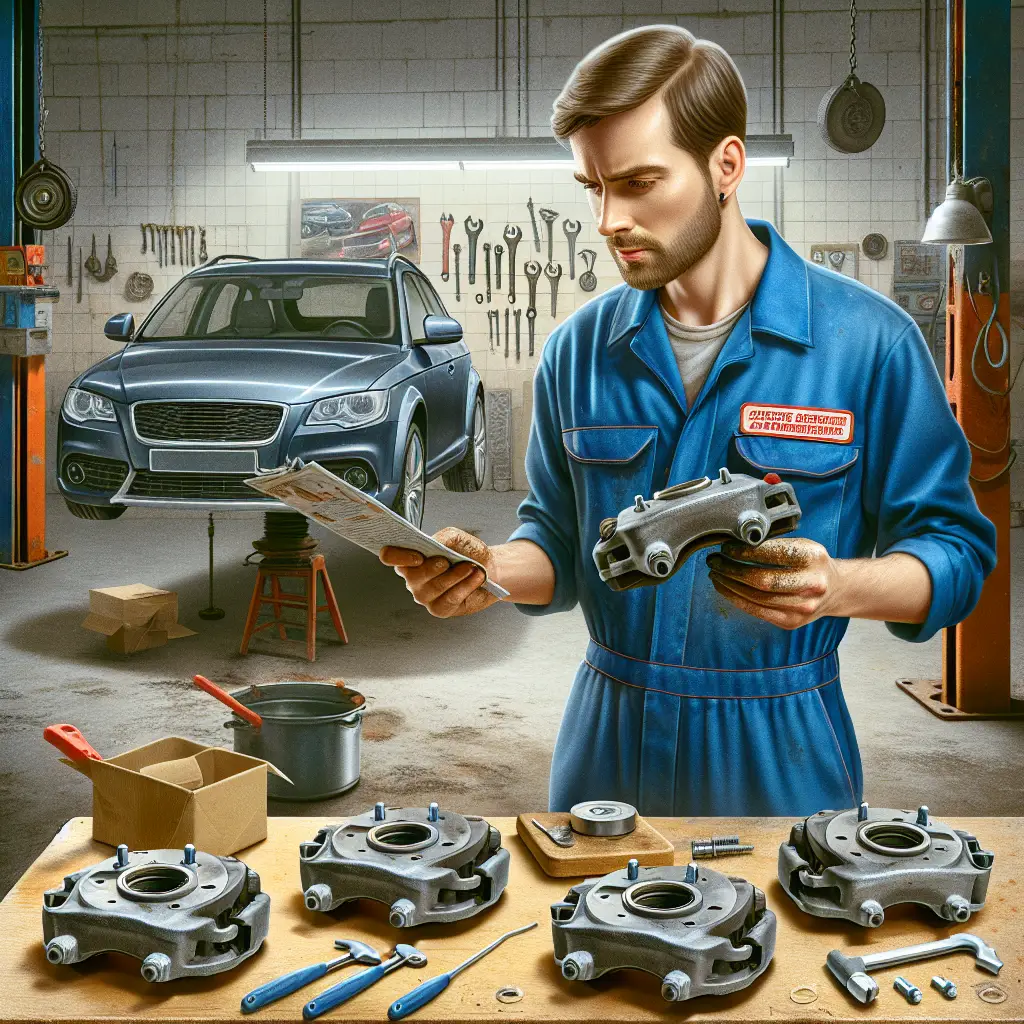Title: Should You Replace All Brake Calipers at Once?
When it comes to vehicle maintenance, the brakes are arguably one of the most crucial systems to keep in top-notch condition. Your life and the safety of others depend on their proper functioning. Among the various components of the braking system, the brake calipers play a pivotal role in bringing your vehicle to a halt. A common question that often arises among drivers is whether you should replace all brake calipers simultaneously or if it’s acceptable to replace just one.
This comprehensive guide delves into the factors that should be considered, ensuring that you make an informed decision for the welfare of your vehicle and your safety.
The Role of Brake Calipers
Before jumping into whether you should replace all brake calipers at once or not, let’s understand their function. Brake calipers are part of your vehicle’s disc braking system. They are the elements that apply pressure to the brake pads, clamping them against the rotors to slow down or stop your car. Over time, calipers may wear down or seize due to rust, dirt, or just plain wear and tear. When that happens, you might notice uneven braking, leaks from the caliper, and reduced braking ability.
Do Calipers Wear Out in Pairs?
Interestingly, brake calipers don’t necessarily wear out in pairs. As Consumer Reports highlights, several factors such as driving habits, environment, and manufacturing can influence the wear and tear of brake components. Therefore, it’s not uncommon for one caliper to fail while the others remain fully functional.
Potential Benefits of Replacing in Pairs
Replacing brake calipers in pairs (both fronts or both rears) can sometimes result in more even braking and can prevent future issues with brake balance, a phenomenon where deceleration isn’t evenly distributed across all wheels, potentially causing handling problems in emergency situations.
When Is It Essential to Replace All Calipers?
If a detailed inspection reveals that all calipers are showing significant signs of wear and tear or there’s a systemic issue such as a vehicle-wide manufacturing defect or corrosive damage, replacing all calipers at once might be the safer option. It guarantees that all parts are equally efficient and can potentially save you from repeated repair visits. The Car Care Council provides resources on regular vehicle maintenance to ensure everything runs smoothly.
Consider the Cost
Replacing one caliper might be the cheaper option in the short term but consider the longer-term costs. If one caliper has failed, it could be a leading indicator that the others might also be close to failing, especially if they’re the original calipers on an older vehicle. You might actually save on labor by replacing them all at the same time versus individually over a longer period.
Trust the Experts, But Be Informed
Always consult with a trusted mechanic or automotive expert. They can help you weigh the pros and cons, and their experience is crucial in identifying any under-the-hood issues that need addressing. However, don’t solely rely on their word; inform yourself too. Edmunds offers detailed guidance on car maintenance that can empower you with knowledge.
Balancing the Factors
There’s no one-size-fits-all answer, but the general consensus in the automotive community leans towards replacing both calipers on the same axle if one goes bad, while also keeping a good eye on the remaining two. As the National Highway Traffic Safety Administration reports, brake-related issues are a common cause of accidents, which is why ensuring a completely functional braking system is critical.
Conclusion
In the end, whether you should replace all brake calipers at once or not boils down to a variety of factors, including the age and condition of your vehicle, your driving habits, and environmental conditions. It’s a balancing act between current vehicle safety and future maintenance costs. Always prioritize safety and consult with your mechanic, but it wouldn’t harm to second-guess and ask, “Do I really need to replace all brake calipers, or can I opt for a more selective approach?”
As always, if you’ve found yourself pondering this dilemma, this article hopefully shines a light on the path to a decision that ensures your safety and potentially saves you money in the long run. Regular maintenance and timely repairs are essential, so keep your brakes in check and drive with the confidence of a well-maintained vehicle.
Remember, the roads are a shared space, and the decisions we make about our cars’ maintenance don’t just affect us but everyone else on the road as well. So, next time you’re faced with a question about your vehicle’s brake calipers, weigh your options carefully—not only for your wallet’s sake but for the safety of everyone out there on the open road.

